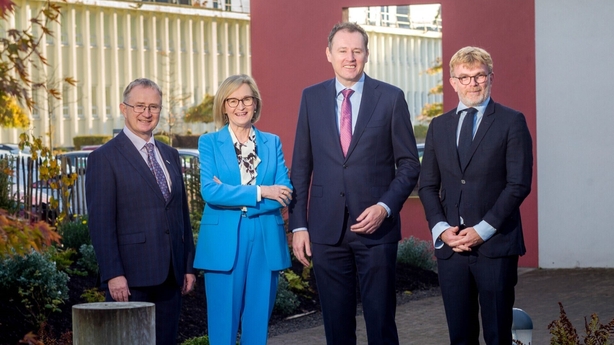A conference exploring how Irish agriculture has fared over 50 years of membership of the EU, hosted by farm research and advisory service Teagasc, has taken place in Dublin.
The event was addressed by European Commissioner for Financial Stability, Financial Services and Capital Markets Mairead McGuinness, Minister for Agriculture Food and the Marine Charlie McConalogue and French Minister for Agriculture Marc Fesneau.
Addressing the conference, Commissioner McGuinness said EU membership had been transformative for farming in Ireland and now farmers have a key role in achieving climate and sustainability goals.
She said: "Joining the EEC (European Economic Community) in 1973 saw Ireland move from the periphery to the heart of Europe, with greater access to markets for beef, dairy and sheep.
"There have been swings in the fortunes of Irish agriculture through those 50 years, price and income shocks, beef and butter mountains and weather related challenges.
"The coming years will see an intense focus on sustainability. Farmers as custodians of the land are vital in achieving our climate and environment goals."

Minister McConalogue said Ireland's accession into the EEC, now the European Union, in 1973 was a pivotal moment in the nation’s history.
He said: "Few events have been as transformative. The decision to join the European community was overwhelmingly supported by the people of Ireland, and was driven by their desire for peace, unity, and shared prosperity.
"Those convinced Ireland’s future lay in Europe showed courage, courage in a new vision for our country, as members of a bigger European family."
The conference heard that since joining the EU, Irish agriculture has modernised, mechanised and specialised and has moved away from mixed farming systems to more specialised farms.
Delegate also heard there are 90,000 fewer farms in Ireland than in 1975.
Currently there are 135,000 farms and the numbers working in farming account for 4% of Ireland's labour force.







